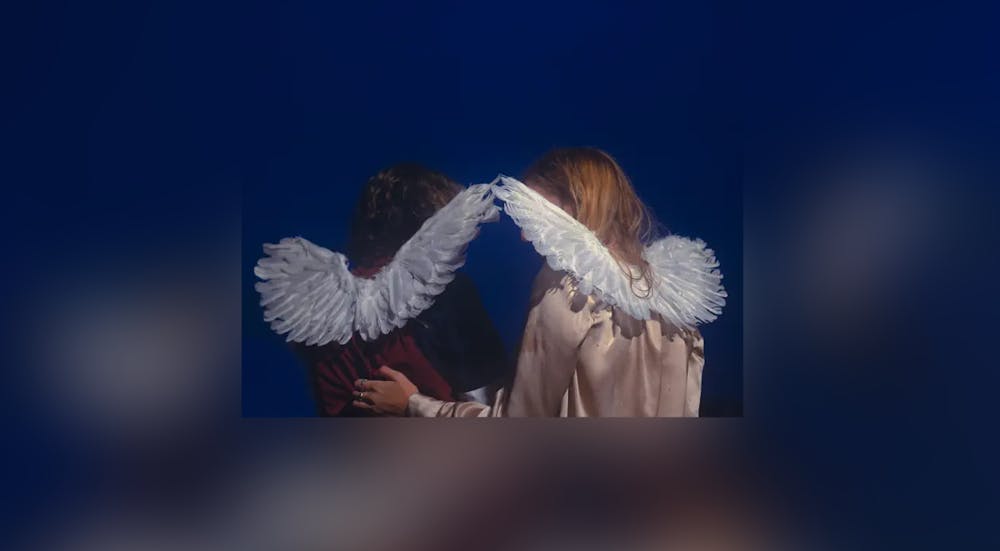With a voice like Lorde and the sensibilities of indie-pop greats before her, Maude Latour has all the makings of a star. Her latest single, pop-ballad “Heaven” reaffirms this potential with its catchy melody and dreamy lyrics.
“These are songs I wrote in real-time while falling in love,” Latour said in an Instagram post, when she announced the single’s release. “’Heaven’ marks the beginning of my next chapter of music.”
This comment may be hinting at an album release, which would be Latour’s first. Her latest EP, “001” was previously met with praise from fans and critics alike who saw it as a departure from her previous sound, though still distinctly Latour’s style.
Related: [Student film ‘Dancing Man’ to premier Feb. 26 at IU Cinema]
Having started writing music at age 15, much of Latour’s growth as an artist took place in front of an audience, through her singles’ successes on Spotify or a few instances of going viral on TikTok. Latour, who only began taking off in 2020 at the start of the pandemic, signed her first record deal with Warner Records a year later. Most recently, she graduated from Columbia University in the spring of 2022. “Heaven” is one of the many singles Latour has released since graduating.
"Heaven” starts off with an 80s-style synth flare and a muffled snippet of the chorus before leading into the first verse, which captures the angst of an early Troye Sivan single. The quickened, unrelenting rhythm in the chorus is what really makes the single so enticing. The first time I listened to it, I caught myself unconsciously dancing — a telltale sign of a good pop song.
Her lyrics stress the authenticity of her joy in the most tender and salient way. Lines like “I could go to heaven with you,” which emphasizes the intensity of falling in love, are juxtaposed with lines like “I can make your bed with you,” which highlight the banal comforts of being with a partner.
Related: [Jazz at Lincoln Center took jaunt through jazz with ‘Songs We Love’]
Perhaps the most notable feature of the new single is the tone shift from Latour’s recent focus on friendship and sisterly love to romantic connection. The subject of romance is not entirely clear, but Maude seems to be hinting at “Lola,” the subject of her previous single by the same name. Whomever the object of Latour’s affection might be, the track does not discriminate and foregoes any gendered pronouns — addressing her partner with “you.”
The track’s closing lines are hopeful: Latour softly sings “And maybe I think that it might be forever,” hinting at her belief in the relationship’s potential longevity. Fans of Latour — including myself — are left hoping that the singer will continue to host her Zoom Parties and send out handmade valentines and zines that strengthen the bond between the artist and fan.
As Latour continues her ascent — including playing the Governer’s Ball in New York and garnering attention from major media outlets — singles like “Heaven” retain all the personality and charm that attracted her audience in the first place.




